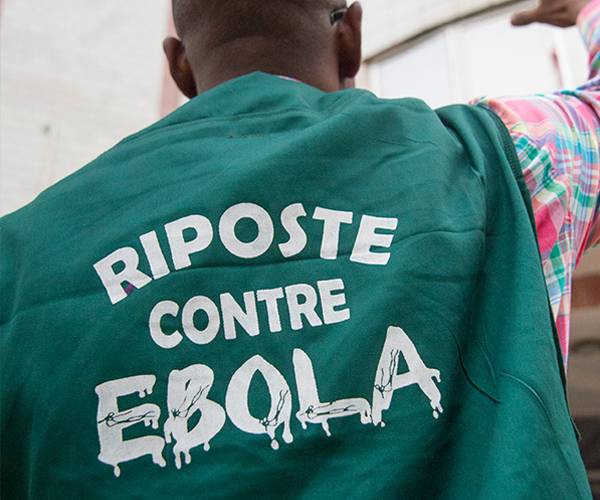You are here
Ebola Outbreak Response in DRC Demonstrates Importance of Global Health Security
Last week marked the second month since the beginning of the Ebola outbreak in the Democratic Republic of Congo (DRC). While this latest outbreak has been alarming, recent news coming out of DRC is encouraging. Importantly, the World Health Organization (WHO) recently reported that all of the people exposed to the last confirmed Ebola patient completed their 21-day follow up without developing symptoms. This achievement is a critical step toward ending the DRC Ebola outbreak, which has infected 53 people and killed 29.
The amount of time it is taking to extinguish this outbreak stands in stark contrast to the devastating Ebola outbreak in West Africa in 2014–15 that infected 28,600 people and took the lives of 11,300 individuals. No doubt, a key factor in these differing outcomes is better preparedness and response.
You may recall that in early 2014, not long before the West Africa Ebola outbreak began to heat up, the U.S. government in partnership with international organizations launched the Global Health Security Agenda. This agenda’s primary goals have been to prevent and reduce the likelihood of outbreaks, detect threats early to save lives and respond rapidly and effectively using multi-sector coordination and communication. Through GHSA, the Centers for Disease Control and Prevention (CDC) and other organizations have worked with 31 countries to accelerate each country’s ability to prevent, detect and respond to infectious disease threats. One of these countries is DRC.
I appreciate all of the incredible work that has gone into advancing GHSA, from each of the 31 countries involved in this effort to the U.S. government and partners. Without question, the work in DRC offers a compelling example of what GHSA can do to protect us all. This example can also serve as a motivator for all sectors—government, philanthropic and private—to continue supporting such vital global health protection work in the years ahead so that we build on the successes achieved since the 2014–15 Ebola outbreak.
Since coming to the CDC Foundation in 2016, I have traveled to three GHSA countries: Thailand, Uganda and Vietnam. On these trips, the importance of CDC’s work with the Ministries of Health around the world to protect Americans became quite clear to me.
For example, while in Thailand, I visited the Thai Emergency Operations Center (EOC) which routinely monitors key diseases across the country. The EOC was established with technical assistance and support from CDC. In Vietnam, I attended an important meeting to establish a National Reference Lab for the country. And, in Uganda, I heard about the shortened timeline for diagnosing Lassa fever based on improvements in transporting lab samples and communicating results.
In addition to seeing this great work, each of these visits provided a critical reminder that in today’s interconnected world, diseases are able to spread farther and faster than ever before. And why it is so important to do work across the globe that will stop outbreaks where they occur, ensuring the health, safety and security of the world.
At the CDC Foundation, we have been pleased to work with CDC and other partners to help extend GHSA, including important work in West Africa. Together, we can help CDC protect us all by strengthening health systems around the globe. You can help. I hope you will join with us by learning more about the importance of GHSA as well as supporting our work with CDC.

